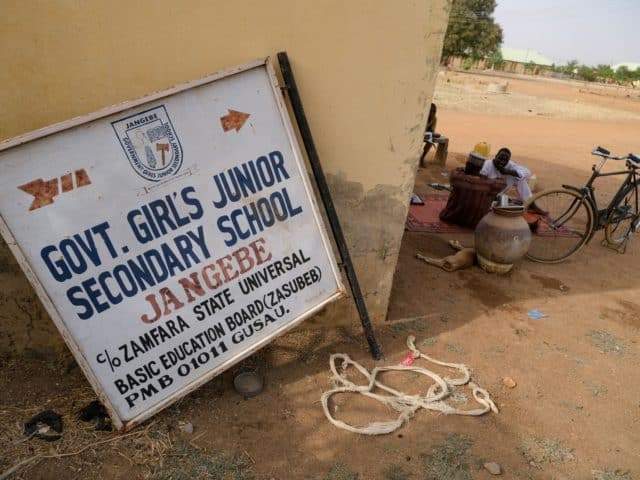Nigeria: States Shut Down Schools as Jihadist Abduction Wave Continues

An increasing number of states in northern Nigeria are closing their schools to protect their students from a rise in “abductions and banditry in the last two months,” the Nigerian newspaper This Day reported on Tuesday.
Northern Nigerian states including Kano, Katsina, Yobe, Zamfara, Niger, Jigawa, and Sokoto have closed a significant number of their public schools in recent weeks.
Kano Governor Abdullahi Ganduje recently ordered ten schools located on the remote outskirts of the state, where security is limited, to close down. He later extended the order to five healthcare worker training centers in Kano. Zamfara Governor Bello Matawalle ordered the closure of all schools in the state on February 26.
Zamfara and Katsina states have been most affected by the recent wave of abductions across northern Nigeria. The Islamist terror group Boko Haram has plagued the region with violent attacks since it formed in Kano in the early 2000s with the goal of establishing an Islamic caliphate in West Africa. Boko Haram believes Western education corrupts Muslim values and frequently targets schools and centers of learning for kidnappings. The group’s name loosely translates as “Western education is forbidden.”
Boko Haram’s most infamous school abduction took place in Nigeria’s Borno state in 2014. The group kidnapped 270 schoolgirls from a government-run boarding school in April of that year. Roughly 100 of the girls abducted in Chibok remain missing today, and in recent months Boko Haram has ramped up similar kidnappings.
The terror group claimed responsibility for the December 11 abduction of over 300 schoolboys from a government-run school in Katsina state; all 344 schoolboys were allegedly released under unclear circumstances one week later on December 17.
Security and local sources told Agence France-Press (AFP) that “the raid was carried out by a well-known criminal in the region, Awwalun Daudawa, in collaboration with Idi Minorti and Dankarami, two other crime chiefs with strong local followings, acting on behalf of Boko Haram.”
Boko Haram’s leader, Abubakar Shekau, allegedly ordered Daudawa to kidnap the schoolboys in Katsina.
“After the children were taken, they went across the border into Zamfara state and split them among different gangs ‘for safe keeping.’ And some of the gangs have been in touch with the authorities for the release of the boys,” Nigerian security forces told AFP.
Unidentified gunmen stormed the Government Girls Science Secondary School in Zamfara state on February 26, kidnapping 279 schoolgirls. Zamfara Gov. Matawalle announced on March 2 that all of the kidnapped girls had been released.
Nigerian state government officials speaking on condition of anonymity told Reuters this week that Nigerian authorities “have made payoffs in the past in exchange for child hostages, creating an incentive for abductions.”
“Several of those officials declined to comment on Tuesday [March 2] on whether they believed a ransom had been paid in the latest incident,” Reuters reported of the February 26 kidnapping in Zamfara.
Photo: KOLA SULAIMON/AFP via Getty
Link: Nigeria: States Shut Down Schools amid Abduction Wave (breitbart.com)











